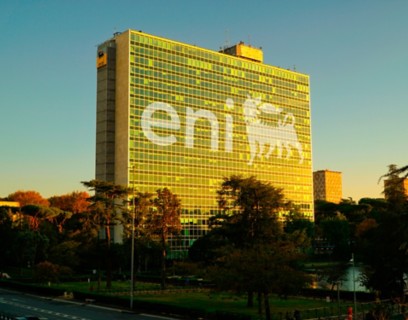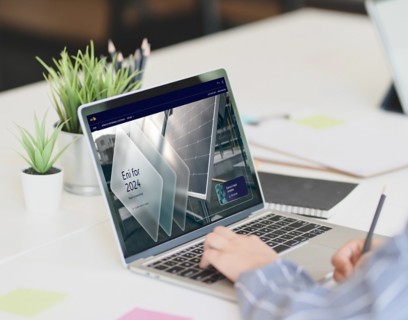Board of Statutory Auditors
It carries out oversight functions required by Italian law as well as the functions attributed to the Audit Committee by US legislation.
Board of Statutory Auditors
- Giulia De Martino – Alternate Statutory Auditor
- Giovanna Villa - Alternate Statutory Auditor
The Secretary of the Board of Statutory Auditors is Francesco Esposito, Head of Eni Accounting and Financial Statement Department.
Composition of the Board of Statutory Auditors
Eni has adopted a traditional model of administration and control as required by Italian law, in which supervisory functions are assigned to the Board of Statutory Auditors. Eni’s Board of Statutory Auditors, composed of five standing members and two substitute members, was appointed by the shareholders on May 10, 2023 – in compliance with current legislation on gender balance – for three years, until the date of the AGM convened for approval of financial statements for the year ending 31 December 2025. The Standing Statutory Auditors Marcella Caradonna, Giulio Palazzo and Andrea Parolini were elected from the slate submitted by the Ministry of Economy and Finance (the “majority slate”) and Rosalba Casiraghi, appointed Chairman of the Board of Statutory Auditors and Enrico Maria Bignami were elected from the slate presented by Italian and foreign institutional investors (the “minority slate”).
Slate voting system
As with the Board of Directors and in accordance with applicable regulations, the By-laws establish that the Statutory Auditors shall be elected on the basis of slates in which the candidates are listed in numerical order; two standing Statutory Auditors and one Alternate Statutory Auditor are appointed from the candidates on the slates submitted by non-controlling shareholders. Pursuant to Art. 28.2 of the By-laws, in accordance with the provisions of the Consolidated Law on Financial Intermediation, the Shareholders’ Meeting appoints the Chairman of the Board of Statutory Auditors from among the candidates elected from the slates other than that which received a majority of votes.
Under the provisions of the By-laws, the submission, filing and publication of slates are governed by the procedures established for the Board of Directors and the provisions of Consob regulations.
Eni By-Laws provide that, in accordance with current legislation on gender balance, two standing auditors belong to the less-represented gender.
Slates are divided into two sections: the first containing candidates for appointment as Standing Statutory Auditors and the second containing candidates for appointment as Alternate Statutory Auditors. At least the first candidate in each section must be entered in the register of auditors and have carried out statutory audit activities for no less than three years. The slates are accompanied by:
i) information identifying the shareholder or shareholders who have submitted the slate, indicating the overall shareholding percentage.
ii) statements from shareholders other than those who hold a controlling or majority equity interest certifying that they are not related to the latter.
iii) the candidates’ personal and professional curriculum vitae.
iv) statements from each candidate certifying that they meet the requirements established under applicable regulations.
v) statements from each candidate accepting the candidacy.
vi) a list of positions of administrative and controlling positions held with other companies.
Slates that, considering both sections together, contain three or more candidates shall include, in the manner indicated in the notice calling the meeting in the section for standing Statutory Auditors, candidates of both genders, in order to comply with the applicable gender-balance legislation. If the section for Alternate Statutory Auditors on these slates contains two candidates, they must be of different genders.
The provisions of the By-Laws directed to ensure compliance with applicable gender-balance legislation shall apply to the first election after 1 January 2020, for the number of consecutive terms of the Board of Statutory Auditors as provided for by the law.
The slates shall be filed at the Company's registered office, including remotely in the manner indicated in the notice calling the meeting, by the twenty-fifty day before the date of the Shareholders' Meeting convened to appoint the members of the Board of Statutory Auditors and made available to the public, on the Company's website and in any other manner provided by the law and by Consob with its own rules at least twenty-one days before the same date.
The slate voting procedure only applies for the election of the entire Board of Statutory Auditors.
In the event of the replacement of a Statutory Auditor elected from the slate that received a majority of votes, the Alternate Statutory Auditor from the same slate shall be appointed; in the event of the replacement of a Statutory Auditor elected from another slate, the Alternate Statutory Auditor from that slate shall be appointed. The new Statutory Auditors remain in office until the next Shareholder’s Meeting which must appoint the standing auditor and the substitute members necessary for the integration of the Board of Statutory Auditors. The new Standing Auditors cease the assignment along with those in office.
Requirements of the Statutory Auditors
Pursant to the Consolidated Law on Financial Intermediation, the Statutory Auditors must meet specific independence, experience and integrity requirements, as established in the regulations issued by the Minister of Justice, in agreement with the Minister of the Economy and Finance. In addition, the Corporate Governance Code Eni has adopted, also recommends that all members of the control body meet the independence requirements established for Directors (Recommendation 9 of the Code).
Independence is assessed by the Board of Statutory Auditors within the deadlines and using the methods established in Recommendation 6 of the Code for Directors, based on the information provided by each member of the body. The assessment is sent to the Board of Directors. The By-laws specify that the professional requirements may be fulfilled by having at least three years of:
- professional or teaching experience in the in the commercial law, business economics and corporate finance fields, or
- exercise of management functions in the engineering and geology fields.
The Board of Statutory Auditors, acting as the “Internal Control and Financial Auditing Committee”, shall also evaluate its fulfilment of the professional requirements imposed by the new provisions of Art. 19 of Legislative Decree no. 39/2010, as amended and supplemented, requiring that “the members of the internal control and financial auditing committee, as a body, are competent in the sector in which the company being audited operates”.
In its meeting of March 22, 2005, Eni’s Board of Directors, electing the exemption provided for under SEC Rule 10A-3 to foreign private issuers of securities listed on regulated US markets, designated the Board of Statutory Auditors as the body that, as from 1 June 2005, performs, to the extent permitted under Italian regulations, the functions attributed to the “Audit Committee” of foreign issuers by the Sarbanes-Oxley Act and SEC Rules.
Under US law at least one member of the Board of Statutory Auditors must meet an adequate understanding of the functions of the audit committee and experience in the analysis and application of accounting standards, the preparation and auditing of financial statements and internal control processes (Financial Expert).
Pursuant to applicable regulations with reference to the plurality of offices, persons may not hold office in a control body of an issuer if they hold the same office in five other listed companies. As long as they hold office in the control body of just one issuer, persons may hold other management and control positions in Italian companies, within the limits specified in the Consob regulations.
The Statutory Auditors are required to report the offices they hold or have relinquished, in the manner and within the time limits established in the applicable regulations, to Consob, which shall then publish the information, making it available on its website.
Requirement' s verification
The Board of Statutory Auditors verifies, after the appointment and periodically, the compliance with independence, integrity and professionalism requirements of each member, set forth in the applicable regulations including those related to the Corporate Governance Code criteria regarding the independence of Directors. The results of the assessments were given to the Board of Directors.
At its meeting on May 11, 2023 upon appointment, the Board of Statutory Auditors verified the compliance with independence integrity and professional requirements of each member; most recently on February 25, 2025, the Board of Statutory Auditors confirmed that the requirements continued to be met, as demanded of all its members. The Board of Statutory Auditors sent the results to the Board of Directors.
On May 11, 2023, after the appointment, and lastly on February 25, 2025, the Board of Statutory Auditors, acting as the Internal Control and Financial Auditing Committee, also evaluated its fulfilment of the requirements imposed by the provisions of Art. 19 of Legislative Decree No. 39/2010, as amended and supplemented, providing that “the members of the internal control and financial auditing committee, as a body, are competent in the sector in which the company being audited operates” and verified compliance with the requirements for members of the Board of Statutory Auditors in their capacity as “Audit Committee financial experts”, under US law.
Meetings and operational procedures of the Board of Statutory Auditors
Under the law provisions, the Board of Statutory Auditors meets at least every ninety days and as frequently as necessary to perform its duties. The Board of Statutory Auditors shall regularly consist of the majority of Statutory Auditors that are present and it shall act by the absolute majority of the auditors that are present.
The By-laws provide that the Board of Statutory may also meet via video conferencing or teleconferencing systems, standing that all the participants could be identified and let the discussion followed and to participate in real time at the dealing of matters inside.
In addition to the supervisory and control functions provided, the Statutory Auditors have to participate to the Shareholders’ Meetings and to the meetings of the Board of Directors. Besides, the Corporate Governance Code recommends that the Chairman of Statutory Auditors or other auditor designated by it participates to the Control and Risk Committee; the members of the Board of Statutory Auditors may in any case attend the meetings of the other internal Board Committees even regardless of their designation by the Chairman of the Board Statutory Auditors.
Statutory Auditors:
- simultaneously with the Directors are provided with documentation of the issues on the agenda to be discussed at the Board of Directors meetings;
- according to the By-laws the Board of Directors and the CEO shall report, on at least a quarterly basis and, in any case, during the Board of Directors meetings on the activities performed and the Company and subsidiary transactions with the greatest impact on performance and financial position;
- are provided with a comprehensive periodic statement on transactions with related parties and in particular on transactions in which Directors or Statutory Auditors have an interest, in compliance with the corporate procedure governing transactions with related parties.
Under that procedure and in compliance with the Recommendation 37 of the Corporate Governance Code, the Statutory Auditors must promptly and thoroughly inform the Chairman of the Board of Directors and the other Statutory Auditors of any personal or third-party interests they hold in relation to any given Company transaction.
The functions of the Board of Statutory Auditors as Audit Committee pursuant to US laws, that integrate those stated by Italian law for Statutory Auditors, are disciplined by a specific Rules, downloadable on the company's website.
2024 Meetings
The Board of Statutory Auditors in office since May 10, 2023, met 19 times during 2024. The average duration of the meetings was 3 hours and 10 minutes with an average attendance of the Statutory Auditors of 99% at the meetings of the Board of Statutory Auditors and at the meetings of the Board of Directors.























